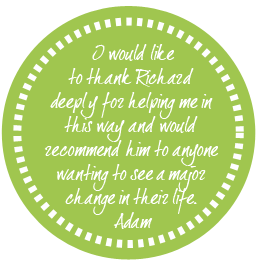I came across the following post, and think it fits well with my coaching philosophy:
“Mountains and oceans have whole worlds of innumerable wondrous features. We should understand that it is not only our distant surroundings that are like this, but even what is right here, even a single drop of water.”
~ Dogen Zenji
Dogen was a Buddhist priest in early 13th century Japan, and although that’s a fair age away, his words can ring deep: if we allow them to by altering our perspective.
So here’s my take on his statement. It’s a metaphor for our inner world. The meaning we assign an experience – any experience – is an “internal” act. Much as we might adopt another’s meaning to an experience, as a belief, we are more than any position our thoughts take us.
Depending on which facet of our experience we choose out of habit, whether that be our Thoughts, Emotions, Sensations, Impulses/Desires, Imagination or Intuition (the last tending to express itself through one or more of the other five “psychological functions”, our worldview can become limited, distorted by unconscious habits of experiencing reality, ie. the world “out there”.
So when you find yourself consumed by thinking, emotions, an impulse to act without forethought, and if you are able, ask yourself: “Who is aware of this experience?” I suggest as some of you who visit this page may have some experience already in developing what I call “The Witness”. It’s a simple practice that, if combined with other mindfulness-growing methods such as Yoga, can return us to Presence: the experience of pure conscious awareness and will, beyond any content.
#presence #psychosynthesis #soul-making

 Sitting down to write contact emails to potential business partners can sometimes err on the painful side (I’m not the most gifted “formal proposal letter” writer), I came across an FB post on a quote by Michel de Montaigne, a 16th century French philosopher who lived at a time when France was wracked by civil war, famine and disease.
Sitting down to write contact emails to potential business partners can sometimes err on the painful side (I’m not the most gifted “formal proposal letter” writer), I came across an FB post on a quote by Michel de Montaigne, a 16th century French philosopher who lived at a time when France was wracked by civil war, famine and disease.

